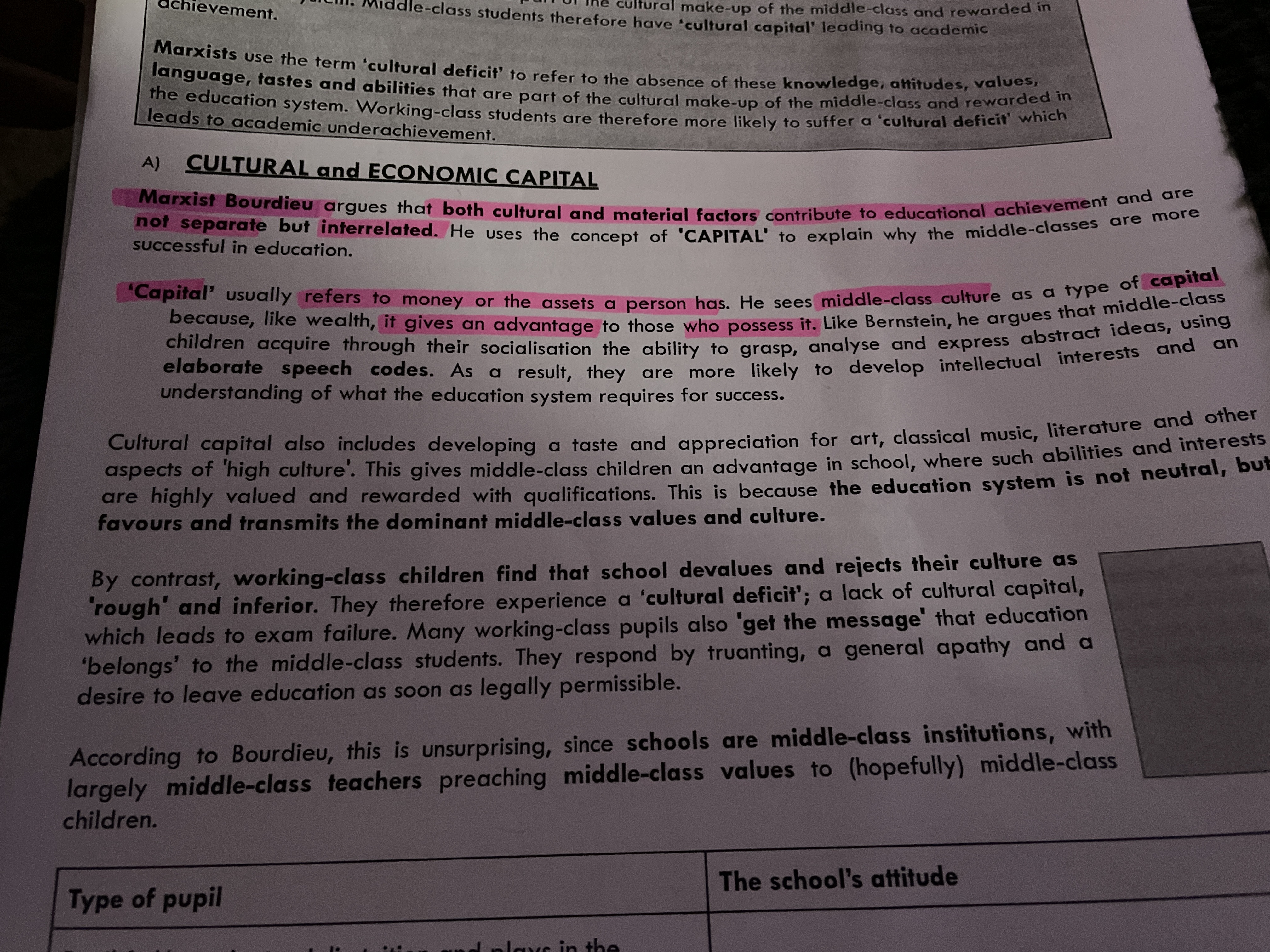How does cultural and economic capital influence educational achievement and the opportunities available to working-class children compared to middle-class children?

Understand the Problem
The question refers to the concepts of cultural and economic capital and how they affect educational achievement and opportunities for different social classes. It explores how the education system can be biased towards middle-class values.
Answer
Cultural and economic capital boost middle-class educational success, disadvantaging working-class children.
Cultural and economic capital influence educational achievement by providing middle-class children with advantages in resources, knowledge, and skills valued by the education system. Working-class children often lack these advantages, leading to educational disparities.
Answer for screen readers
Cultural and economic capital influence educational achievement by providing middle-class children with advantages in resources, knowledge, and skills valued by the education system. Working-class children often lack these advantages, leading to educational disparities.
More Information
Cultural capital includes skills and values that align with those promoted by educational institutions, while economic capital allows for investment in quality education. Together, they enhance educational outcomes for middle-class children.
Tips
A common mistake is assuming that cultural capital is only about material resources; it also includes intangible assets like knowledge and values.
Sources
- Cultural Capital and Educational Achievement - ReviseSociology - revisesociology.com
- Cultural capital, economic capital, and academic achievement - d.lib.msu.edu
AI-generated content may contain errors. Please verify critical information